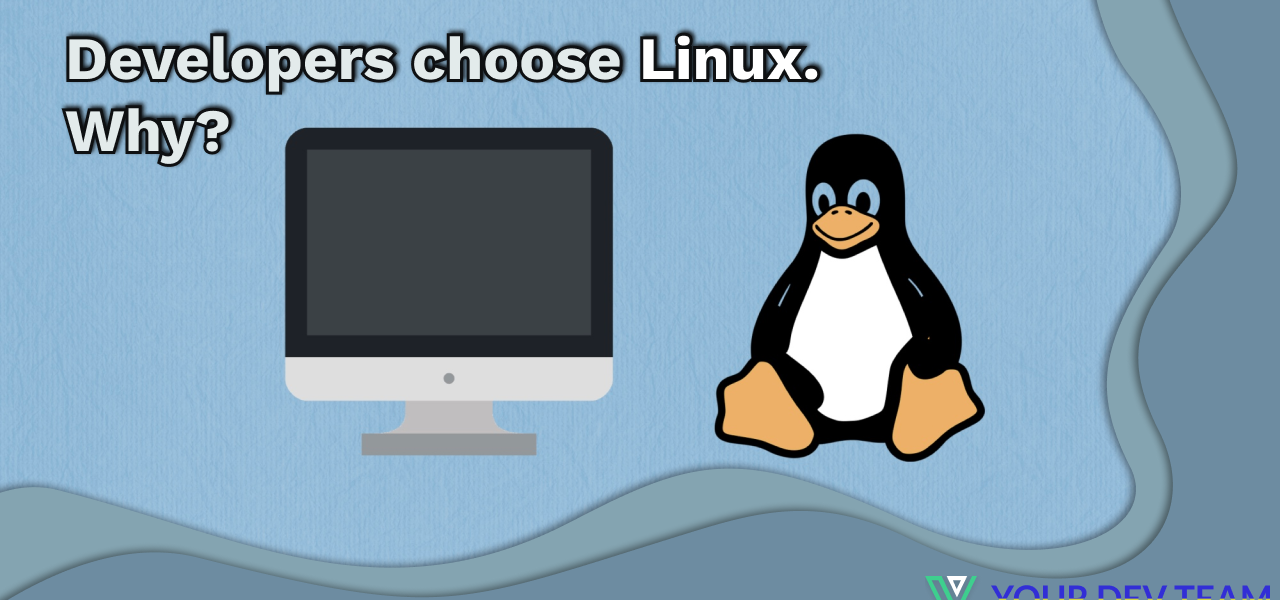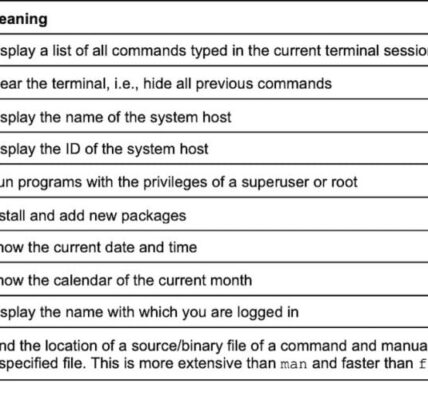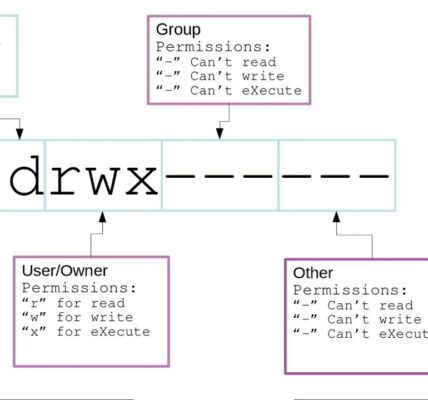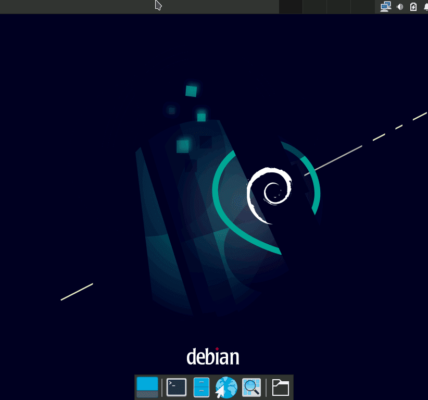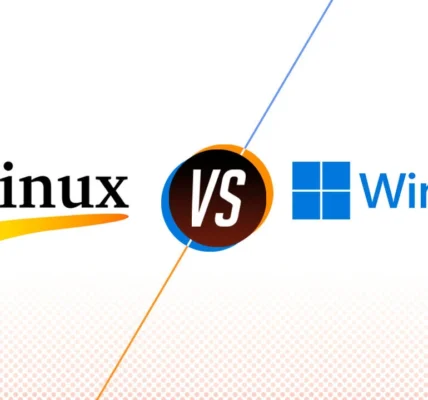LWhy Developers Prefer Linux. Its flexibility, customization options, and power-packed features make it ideal for software development, system administration, and other technical fields. Why Developers Prefer Linux. But what exactly draws developers to Linux? In this article, we’ll explore the top 10 reasons why developers prefer Linux and why this open-source OS remains at the heart of modern tech.
Open Source and Free to Use for Developers
One of the primary attractions of Linux is that it’s open-source and free. Developers have complete access to the source code, enabling them to understand the system’s inner workings, modify it as needed, and tailor it to specific project requirements. This freedom to inspect, learn, and adapt without license costs is a huge plus for tech enthusiasts.
Key Benefits:
- No cost, free access to code
- Ability to modify and redistribute
- Fosters a strong developer community
Unmatched Customization Options for Developers
Linux offers unparalleled customization, allowing developers to adjust almost every aspect of the OS. From choosing a window manager to tweaking desktop environments, Linux can be configured to meet individual preferences. This flexibility is ideal for developers who want an OS tailored specifically to their needs.
Key Benefits:
- Customizable desktop environments
- Flexible file system management
- Ability to create a personal workflow
Stability and Reliability for Developers
Linux is known for its stability and reliability, especially for long-term use. It can run for months or even years without the need for a reboot, which is why it’s commonly used on servers. For developers, this stability is crucial, particularly when managing critical applications or working on complex projects that require consistent uptime.
Key Benefits:
- Rarely needs to be rebooted
- Great for servers and development environments
- Reduces risk of crashes and system errors
Strong Security Features for Developers
Security is a major concern for developers, and Linux is one of the most secure operating systems available. Linux’s permissions system, open-source nature, and frequent updates make it less vulnerable to viruses and malware compared to other OSes. Developers can also modify the system to add custom security layers, enhancing safety further.
Key Benefits:
- Strong permissions system
- Fewer vulnerabilities to viruses and malware
- Open-source transparency aids in security
Excellent Package Management and Software Repositories for Developers
Linux distributions (distros) come with powerful package management systems, which simplify installing, updating, and managing software. Popular package managers like APT (for Debian-based systems) and YUM (for Red Hat-based systems) allow developers to install and update packages effortlessly from vast software repositories.
Key Benefits:
- Convenient package management
- Large selection of free software in repositories
- Easy updates for system and installed software
Ideal for Command Line Work for Developers
The command line interface (CLI) in Linux is incredibly powerful, allowing developers to automate tasks, run scripts, and manage files more efficiently. Linux’s command-line tools, like grep, sed, and awk, enable developers to handle text processing, data manipulation, and system monitoring with ease. Mastering the Linux command line is often a rite of passage for developers.
Key Benefits:
- Robust CLI for advanced operations
- Automates repetitive tasks
- Essential tools for text processing and scripting
Vast Community and Extensive Documentation for Developers
The Linux community is one of the most active and supportive open-source communities in tech. From forums and mailing lists to comprehensive documentation, developers can find solutions, tutorials, and advice on almost any Linux-related issue. This sense of community support is invaluable, especially for beginners transitioning to Linux.
Key Benefits:
- Active support from forums and groups
- Extensive documentation for troubleshooting
- Large community-driven projects and contributions
Multiple Distributions for Various Needs for Developers
Linux offers a wide range of distributions (distros), each tailored to different needs. Whether it’s Ubuntu for beginners, Fedora for cutting-edge developers, or Arch Linux for those who like complete control, there’s a distro suited for every type of developer. This variety allows developers to choose an OS that best matches their preferences and project requirements.
Key Benefits:
- Different distros for different skill levels and purposes
- Allows developers to select specialized tools
- Flexibility to choose based on project or environment needs
Ideal Environment for DevOps and Cloud Computing for Developers
Linux’s popularity in cloud computing and DevOps is no accident; most cloud platforms and DevOps tools, like Docker and Kubernetes, are designed with Linux in mind. This compatibility makes Linux an essential tool for developers working in modern software environments, enabling them to deploy and manage applications efficiently in the cloud.
Key Benefits:
- Seamless integration with cloud platforms
- Compatible with popular DevOps tools
- Enhances containerization and virtual environments
Supports Development in Multiple Languages for Developers
Linux supports a wide range of programming languages out of the box, including Python, Ruby, Java, C++, and more. The system comes with powerful compilers, interpreters, and development tools, making it ideal for multi-language projects. Additionally, developers can easily install and configure language-specific environments, helping them work seamlessly across projects.
Key Benefits:
- Supports multiple programming languages
- Easy to set up language-specific environments
- Ideal for cross-language development projects
Conclusion: Why Developers Prefer Linux
For developers, Linux isn’t just an operating system; it’s a platform that empowers them to work more efficiently, securely, and creatively. From open-source flexibility to a robust command-line interface, the reasons why developers prefer Linux are as varied as the projects they create. Embracing Linux can be a game-changer for developers seeking a powerful, adaptable, and free development environment.
FAQs
1. Is Linux completely free for developers?
Yes, most Linux distributions are entirely free, though there are paid versions for enterprise environments.
2. Which Linux distribution is best for beginners?
Ubuntu is popular for beginners, while more advanced users might prefer Fedora or Arch Linux.
3. Is Linux suitable for software development?
Absolutely. Linux provides tools, flexibility, and an environment perfect for various programming needs.
4. Do Linux systems require antivirus software?
Linux is less prone to viruses, but it’s recommended to use security tools for added protection, especially on servers.
5. Can I use Linux on my current PC?
Yes, Linux is compatible with most hardware, and you can install it alongside or instead of Windows.
